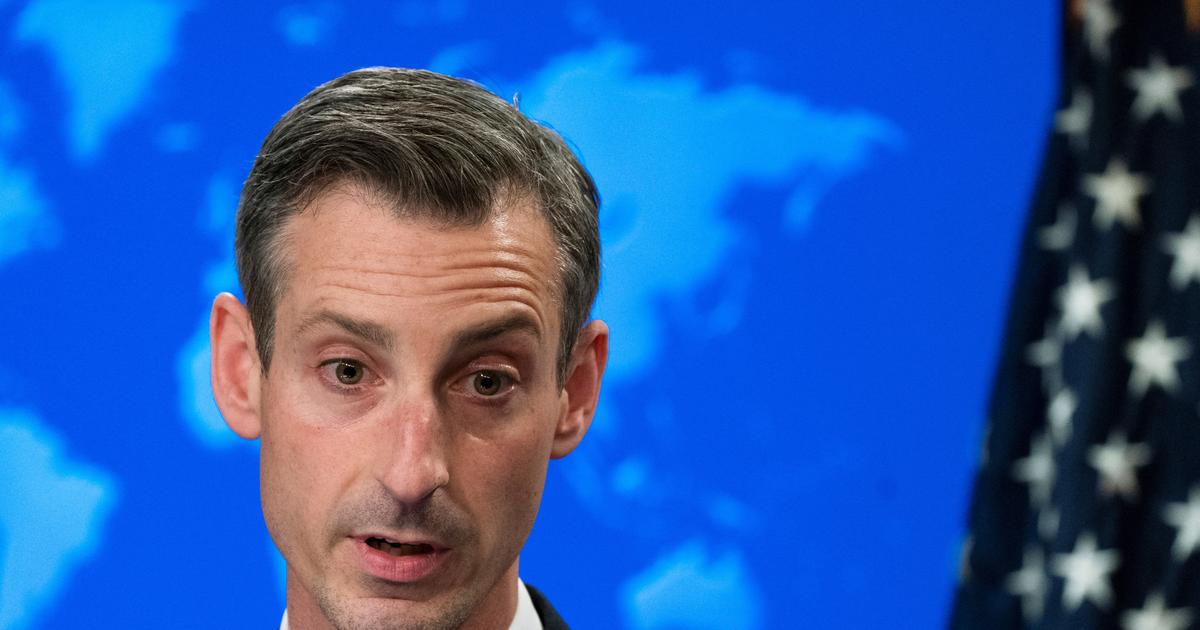The optimism of recent weeks seems to have dissipated: the United States is once again openly raising the possibility of a failure of negotiations to save the Iranian nuclear agreement, threatening Iran to resort to a plan B with outlines still vague.
Read alsoThe Iranian nuclear agreement “held hostage” by the conflict in Ukraine
"An agreement of this kind is neither imminent nor certain
," said Tuesday the spokesman for American diplomacy Ned Price, who had already issued such a warning the day before.
“There are a number of difficult subjects that we are still trying to resolve
,” he added.
According to him,
"the ball is in Tehran
's court" to make
"difficult"
decisions - which Washington has said for its part
"ready"
to assume.
The change in tone is clear.
At the beginning of March, after eleven months of complicated talks, a compromise seemed imminent in Vienna between the great powers and Iran to resuscitate this agreement supposed to prevent it from acquiring the atomic bomb.
Then new Russian demands, linked to Western sanctions against Moscow for the war in Ukraine, forced the negotiators into a pause.
But once this obstacle was removed, the road seemed almost clear, so much so that Washington estimated, less than a week ago, to be
“close”
to a breakthrough.
Negotiators hoped to conclude after the festive period of Nowruz, the Iranian New Year which was celebrated on Sunday.
The 2015 Iran nuclear deal had lifted economic sanctions against Iran in exchange for restrictions on its nuclear activities to ensure, under international supervision, that they remained strictly civilian and peaceful.
But under the presidency of Donald Trump, who found it insufficient, the United States left the agreement in 2018 and reinstated its sanctions.
In response, Tehran has freed itself from the key limits to its atomic program.
The Revolutionary Guards at the center of the discussions
Since the arrival of Joe Biden at the White House last year, negotiations have been underway to save this agreement, by lifting American sanctions against an Iranian return in the nails of the text.
According to a source familiar with the matter, Tehran is demanding the removal of the Revolutionary Guards -- the ideological army of the Iranian Islamic Republic -- from the US blacklist of
"foreign terrorist organizations",
and this demand is one of the last obstacles to a compromise.
"It's a thorny point,"
Democratic Senator Tim Kaine admitted on Tuesday after a closed parliamentary hearing with US envoy for Iran Rob Malley.
A fervent supporter of a negotiated solution, Democratic Senator Chris Murphy said keeping the "Guardians" on the blacklist had
"no practical consequences,"
suggesting that Washington could afford the concession.
But the American right and Israel, hostile to the 2015 agreement and therefore to its revival, have made this issue a red line, putting the Biden administration in a certain embarrassment.
Is his firmness of the last few days aimed at avoiding a lawsuit in weakness as an agreement approaches?
Chris Murphy warned that a compromise was
"not yet concluded"
, but he clarified that the ball was not only in the Iranian camp.
"There are significant decisions that need to be made in Washington and Tehran,"
he slipped.
Threat of “alternative” options
Be that as it may, like late 2021 when the talks seemed -- already -- deadlocked, the Americans again began to brandish the threat of
"alternative"
options .
"President Biden has pledged that Iran, as long as he is in power, will not be allowed to possess a nuclear weapon"
,
"whether with the agreement or without agreement"
, hammered Monday Ned Price.
"That's why for a good part of the year, we prepared for all the hypotheses, for all the scenarios"
, including the death of the 2015 agreement, he added on Tuesday, assuring that this had been the subject of discussions with Washington's allies in the Middle East and Europe.
However, he refrained from specifying the outlines of such a plan B.
In the fall, Secretary of State Antony Blinken warned that the United States was considering
“all options”
in the event of diplomatic failure, without excluding the use of force.

